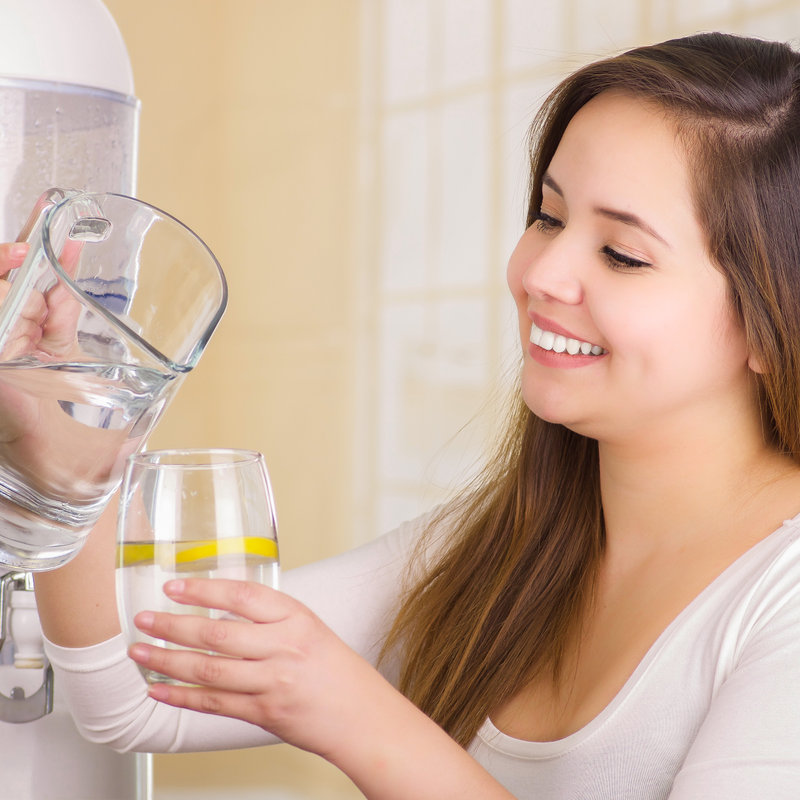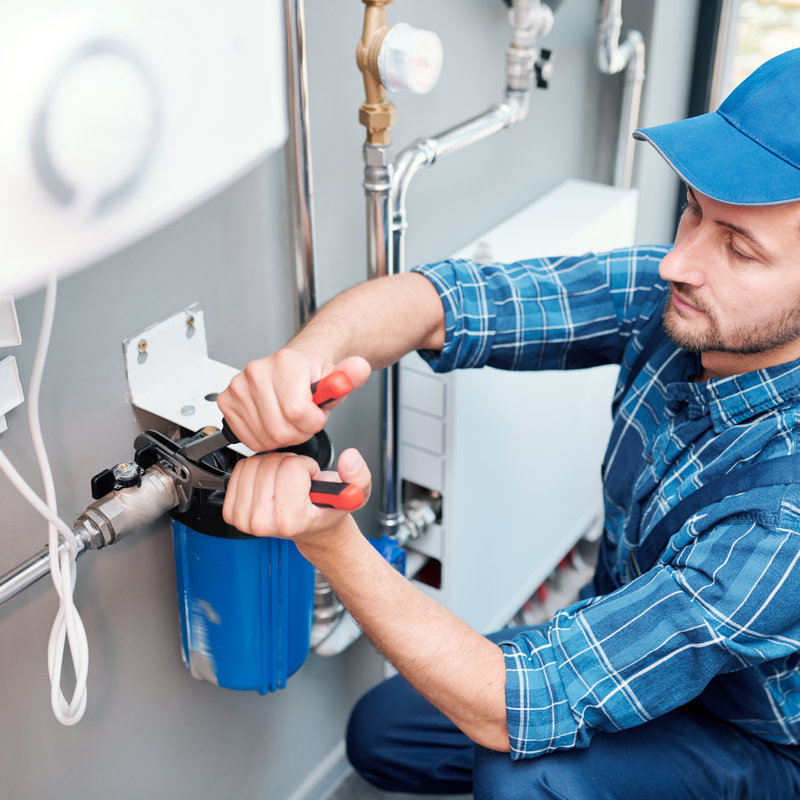
Keeping Your Water Clean
Like anywhere else, homeowners in Indianapolis, Indiana are concerned about the water quality in their homes. And therefore, water filtration systems have become incredibly popular today. Federal, state, and local governments have put certain regulations into place to assure that the water going into homes is safe. So, are water filtration systems necessary then?
While the systems are used for assuring that we have clean water coming into our homes, there is always the slightest chance of failure. So no, a water filtration system isn’t necessary, but it doesn’t hurt to be safe either, right? There is always the chance of system failure and mishaps from the very start of mass water safety.
A water filtration system can eliminate the contaminants that may get through the city, county, or state filtration system. There can be contaminants between the last bit of the filtration process and the plumbing in our homes that have contaminants that could make the water taste bad, or even make us sick.
Why Water Filtration is Important
Water is something we use every day. It is an essential part of our lives, so being concerned about the quality is natural. A water filtration system can give us assurance that we’re receiving the best water possible, especially in areas where the tap water has been deemed undrinkable.
A water filtration system takes out the contaminants and can make water taste better. It encourages us to get the hydration we need every day without the worry of becoming ill. This can be of special concern when there are elderly adults, infants, or anyone in the home with an immune system that is at risk of being compromised.
When water has the possibility of being contaminated by any of the following due to any failure or outbreak in the water system, the repercussions can be deadly:
- Copper
- E. coli
- Hepatitis A
- Norovirus
- Salmonella
Each of these is a contaminant or heavy metal that has been known to be associated with issues of the kidney, respiratory system, cancer, and cause reproductive challenges. A water supply that is polluted can damage the hair and skin, and finally, the pH level in water has been found too high in many areas. A water filtration system in the home can help minimize, or even eliminate these possibilities.
When you know the basics of how water filtration works, you can appreciate these concerns better. First, the large interior surface of a water filtration system traps contaminants and sediments physically. Then, almost like a magnet, there is activated carbon that catches lead, volatile compounds, and others as the water passes through. The last step of most water filtration equipment, chlorine and other like chemicals are reduced.
What type of water filtration system do I need?
Before you buy a water filtration system for your home, you should know how to choose a water filtration system. There are different styles, and each has a specific function for different contaminant issues. Experts in water filtration systems recommend having your water tested to find out what is in your water first.
There are companies that will come to your home, this is the more expensive way, or there are DIY water testing kits you can purchase. That is the least expensive but not always as comprehensive. No water filtration system will be 100% effective in removing every possible contaminant. This is why knowing what is in your water is important before you make the investment. A list of water filtration systems that are available:
- Water filter pitchers: These are filled at the top of the pitcher and a built-in filter will filter the water as it is poured. These are the most inexpensive, easy to use, and don’t require any installation. The downside are the limited models, the pore size, the filtering process is slow, and the filter needs to be replaced on a regular basis.
- Refrigerator filters: Today, a refrigerator with door access to water and ice will have a built-in water filtration system that will improve the taste of the water and ice. The filter will need to be replaced on a regular schedule.
- Faucet-mount filters: This type of water filtration system will attach to your kitchen faucet and is manually turned on and off as desired. A relatively inexpensive investment but may not work on every type of faucet.
- Faucet-integrated filter: Designed with a built-in filter, this option requires installation, and is easy for switching between filtered and unfiltered. A more expensive water filtration system that requires installation.
- On-counter filters: Another faucet-integrated filtration system with built-in filters that are installed, making it easy to switch between filtered and unfiltered water. A more expensive choice of water filtration systems.
- Under-sink filters: As the name says, these are installed under the sink, the water goes through a pipe to a specially installed faucet. Substantial amounts of water are filtered without taking up countertop space. Plumbing modifications are required and this is one of the more expensive water filtration systems on the market.
- Whole-house water treatment: The crown of all water filtration systems, and the most expensive but comprehensive. Water throughout the home is filtered, a plus in areas with hard water and high VOC count. The unit itself is expensive in addition to the upfront cost of professional installation by trained professionals that know how to install a home water filtration system as well as provide a routine maintenance schedule. The types of filtering system will often remove chlorine that is needed to keep germ growth at bay.

When It Is All Watered Down ….
Once you make the investment, how long do home water filtration systems last? Each of the water filtration systems we listed have different lifespan expectations. If you have a thorough understanding of how to maintain a water filtration system, the longer the service. For example, a whole house water filtration system is typically maxed at 12 months.
